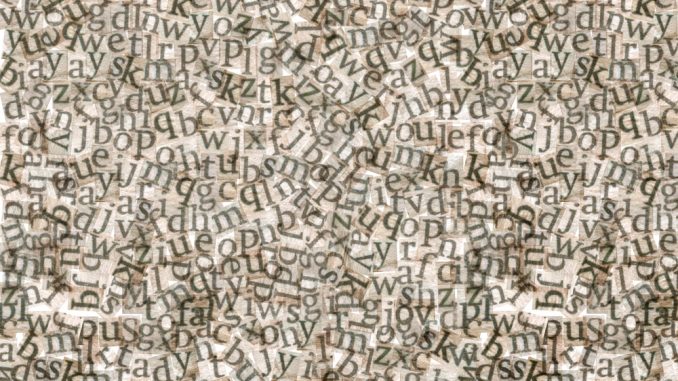

A couple of days ago I swapped some comments with author Adam Christopher on his blog about daily word counts and the like.
I mentioned that I, on average, write 5000 words a day. This isn’t bragging, it’s just what I do. Most of the time. There are, of course, days when writing 50 words is like pulling teeth. Out of cement. With an oven glove.
But give me the right project and 5k is more than possible.
When I’ve said this before I’ve been met by a number of different responses ranging from “how?” to “come here and let me twist your head off, you insufferable show off.”
I thought that I’d answer the first question today, while hoping that no one will actually follow-up on the threat of the second.
So how do I do it?
1. Set a target.
Yes, I know this will sound like dreadful self-help guff, but I start the day by telling myself that I will write 5,000 words. Why 5,000? Because I know I can. If I could only manage 3,000 that would be my target. Same if it was 500. I don’t see the use of setting myself up for a fall. It would be pointless saying “I will write 7,678 words today,” when I know that it’s a physical impossibility. I wouldn’t come near my goal and so would end up utterly demoralised by the end of the day.
The following day would also see me pressured into desperately trying to make up the short-fall. Result: doom, gloom and a sense of abject failure.
So tip one – set yourself a target you know you can achieve.
2. Try to beat your target.
That doesn’t mean you should rest on your laurels. Know you can write 2,000? Then when you hit your target, don’t stop. Write 500 more if you can. Or 300. Or 100. That way you’ll feel good about yourself when you put down your pen or hit save.
That’s how I got to my 5,000 word target anyway. I used to write 3,000 and over time pushed it to 3,500 and so on.
3. Cut yourself off from the world.
Distractions are wonderful. They can keep you sane when you’re stuck in a room by yourself for eight hours at a stretch. They are also a complete and utter time sink.
“I’ll just check my email.”
“Five minutes in Facebook won’t hurt. ”
“I wonder what’s happening on Twitter.”
“Ooh, that looks an interesting link. And so does that one. And that. And that. And that…”
Before you know it, you’ve lost hours.
Yes, checking your emails can be important, but do you have to do it every minute? In fact, must you have your email on at all? And what if you miss that hilarious cat meme that’s doing the rounds? Trust me, it’ll still be there when you’ve finished work.
This is how I structure my writing days:
Step one: Set the timer on my phone for fifty minutes.
Step two: Shut down email, turn off twitter and stop all notifications on my mac.
Step three: Set the timer going.
Step four: Write until the timer sounds. No checking social feeds. No looking at emails. Just write.
Step five: After the timer has gone off, give myself 10 minutes to make a brew and check my emails and what-not to my heart’s content. After 10 minutes the timer goes on and the cycle begins again.
50 minutes works for me. For you, it could be 40, 30 or 25. The important thing is to lock yourself away from the world and write.
4. Don’t edit… yet.
When I’m in full flow, I turn my internal editor off and just splurge words on the page. Some of them will be the wrong words. Some of the sentances will be clunky. Some of the dialogue, frankly atricious. But they’ll be written. You can alway go back and craft them into literary gold afterwards – just get that first draft done.
And that’s how I do it. Of course, there are other days. Planning days. Research days. Admin days. Sitting watching Doctor Who and eating Peanut M&M days. But on days when I need to write, that’s what works for me. Maybe it will work for you too
Got other tips for getting through the writing day? How do you plan your routine. Leave a comment below and let me know.


Love the fact that this tweet describes the writing routine I talk about above ‘word splurge prison style’.
https://twitter.com/mangozoid/status/419026136568709120
I might have to rename my study the Word Splurge Prison…
Much appreciated! Having already been interrupted this morning by a 1-y-o and his sticker book, and a 4-y-o with (yet) a(nother hand-made) Christmas card, the bit about distractions strikes a chord.
What’s your target when you have to research facts as you go? Assume your 5000-word target is for fiction?
Yeah, the 5000 words is for fiction.
Non-fiction obviously takes longer if you have to check as you go. I usually aim for 2,000 words a day if that’s the case. Although, in most cases I try to get all the research and fact-checking done before I write the copy.
Sticker books take almost as much time as Facebook!
Do you use any highfalutin writing apps on your mac like scrivener etc or good old apple page or word will do? Thanks for the advice!
Hi Nigel,
I use Scrivener on my iMac for first drafts and then output to word for a final edit and submission.
When I’m on the go, I use Pages or Plaintext on my iPad – the great thing about Plaintext is that if you use it with dropbox you can sync it with the Scrivener file of your current work in progress.
Thanks mate, I’m getting my head around scrivener but using it to its potential…yet! Thanks again for the advice it’s greatly appreciated.
I probably only use a fraction of what Scrivener can do, but it’s great!
Cavan – do you happen to have any interest in psychology? I ask as last year I wrote some articles in Writer’s Forum magazine all about the psychology of being a writer. These including how to identify your own traits, strengths and weaknesses and also some tips for being productive / effective.
By any chance do you know your Myers-Briggs type? (Not worth looking into if you don’t – I’d hate to be a distraction!)
I’ve just this minute finished reviewing a philosophy book Tony!
I don’t know my type. Is your article online at all?
Cavan,
I wrote a connected piece for Working Mums magazine – http://www.workingmums.co.uk/working-mums-magazine/hot-topics/7230993/how-to-make-the-most-of-homeworking.thtml
I’ve sent you a couple of the Writer’s Forum pieces by email
Thanking you!
I use much of the author’s process when I write my 1st draft. I just throw words at the page and sort the mess out later, of course I have my story arc and 3 acts sorted before attempting the draft . It’s good to have direction.
The 2nd draft i find is much harder since I have spend a lot more thought on crafting the sentence. Once I get started however…I can blow through 1,500 words in an hour.